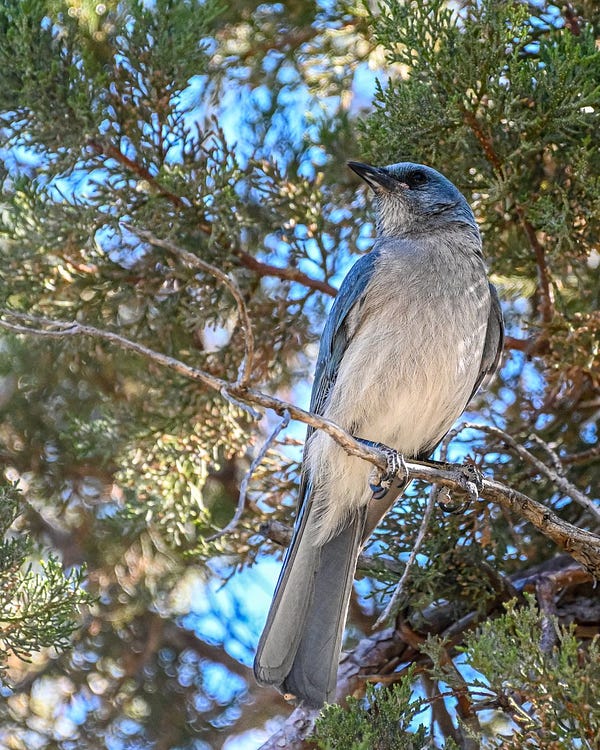PRESENTED BY FANTASY WORLDS
Charlie Loyd, a software engineer for Mapbox whose writing recalls that of John McPhee, has proposed a taxonomy of U.S. environmentalists: neighbors, surveyors, and stoichiometrists. The neighbors have “networked worldviews and emphasis on caring and mutualist relationships.” Where neighbors are interested in “sustainable relationships within nature,” the surveyors care about “conserving nature by keeping it apart from human space and time.” The surveyors map out grand vistas, a tradition “rooted in romanticism, transcendentalism, and manifest destiny.” Finally, the stoichiometrists “only care about carbon.”
Neighbors
Today, the Walk for Appalachia’s Future reaches Richmond, Virginia. For ten days, participants have traveled from Ireland, West Virginia, along the route of the planned Mountain Valley Pipeline to protest the construction of more fracked-gas infrastructure. The Democratic chair of the Senate Committee on Energy and Natural Resources, Sen. Joe Manchin (D-W.V.), has called on President Joe Biden to use the Defense Production Act to force the construction of the pipeline, seizing the land of those who live along the path.
(Fantasy) Surveyors
Some people prefer maps of fantasy worlds.
Maxine Joselow and Jeff Stein went the extra mile for faux naïveté with their news [sic] article, “House Republicans to unveil conservative road map on climate, energy.”
If you’re gonna call it a “road map,” you really need to indicate in the headline it’s for the highway to hell.
Anyhoo, the “strategy [sic] calls for streamlining the permitting process for large infrastructure projects, increasing domestic fossil fuel production and boosting exports of U.S. liquefied natural gas.”1
Joselow and Stein also let us know that Philip Rossetti, at the R Street “we’re the Heartland Institute except we claim we believe in climate change” Institute, is stoked.
Stoichiometrists
In a possibly less risible exercise in mapping the future, the Commodity Futures Trading Commission is holding its first major conference on voluntary carbon markets all day today. Administration officials speaking include the Treasury climate counselor John E. Morton, Agriculture climate advisor Sean Babington, Transportation’s aviation and climate secretary Annie Petsonk, White House climate science advisor Philip B. Duffy, Ph.D., and State’s climate offsets negotiator Christine Dragisic. I expect the most entertaining panel will be at 3 PM, which features Public Citizen’s Tyson Slocum going up against representatives from BP and the American Farm Bureau. Carbon markets are almost inevitably scams, rife for abuse. But market fantasists want to believe.
Charlie Loyd’s most recent missive is a transcendent dive into the real world, a stoichiometric, neighborly survey of transoceanic shipping that assembles asparagus, crab sails, space capsules, displacement hulls, heavy fuel oil, hurricane track errors, and negative aerodynamic stability into a compelling and weird critique of the paving stones of society:
I want us to unclench the fist of high modernism and allow the wind some say in when ships get to port. I want infrastructural systems that are designed for the noise of the world – that have often-tested cushions and failsafes for when things fall apart, and that can pass on, rather than being flooded by, chance surpluses. I also really want to see what happens if you spend an unreasonable number of flops on co-optimizing a Panamax ship’s hull with a giant fully adjustable crab claw sail.
If, after consuming this feast, you haven’t gotten your fill, turn to Kathryn Schulz’s exploration, “When Shipping Containers Sink in the Drink,” for a dessert cart of delectable paragraphs about our civilizational effluvium:
What else has started off on a container ship and wound up in the ocean? Among many, many other things: flat-screen TVs, fireworks, IKEA furniture, French perfume, gym mats, BMW motorbikes, hockey gloves, printer cartridges, lithium batteries, toilet seats, Christmas decorations, barrels of arsenic, bottled water, cannisters that explode to inflate air bags, an entire container’s worth of rice cakes, thousands of cans of chow mein, half a million cans of beer, cigarette lighters, fire extinguishers, liquid ethanol, packets of figs, sacks of chia seeds, knee pads, duvets, the complete household possessions of people moving overseas, flyswatters printed with the logos of college and professional sports teams, decorative grasses on their way to florists in New Zealand, My Little Pony toys, Garfield telephones, surgical masks, bar stools, pet accessories, and gazebos.
Thanks to D.C. Mayor Muriel Bowser and Council Chairman Phil Mendelson, various public facilities including the city’s Central Cell Block and a few schools have been without air conditioning as heat waves our nation’s capitol.
A Molly Taft special: Intersectional oil: Chevron celebrates Pride Month while funding bigots in Congress.
Agatha dissipates over Mexico after making landfall as strongest Pacific May hurricane. The death toll is nine.
Duke Energy is trying to rig North Carolina’s solar-energy rules.
JERB: Oil Change International is seeking a United States program co-manager to develop strategic campaigns, manage the U.S. team, and support partners to end fossil fuel subsidies, stop fossil infrastructure, and pressure the U.S. federal government to confront the fossil fuel industry ($90K-$105K, remote). A great example of OCI’s work is its most recent report, Big Oil Reality Check.
Climate Action Today:
9 AM: Beyond Extreme Energy
Walk For Appalachia's Future: Richmond, VA9 AM: Commodity Futures Trading Commission
Voluntary Carbon Convening
One final map: WhereToProtestGuns.com, which displays the locations of the 79,867 gun dealers and makers across the nation.
Thanks for subscribing and spreading the word. Hill Heat will be back to its daily schedule next week as Congress returns. DMs are open—@climatebrad
So, the climate policy of the current Democratic Chair of the Senate Energy and Natural Resources Committee.








